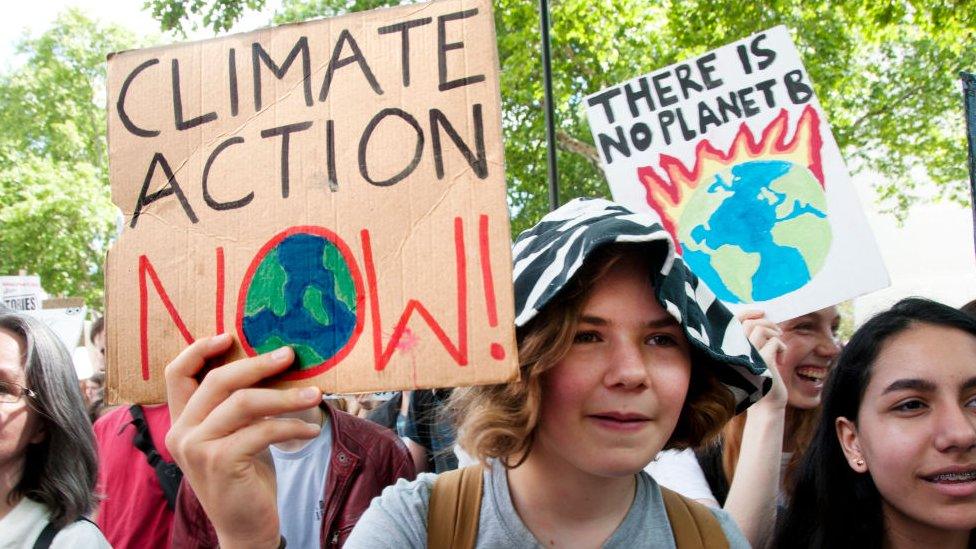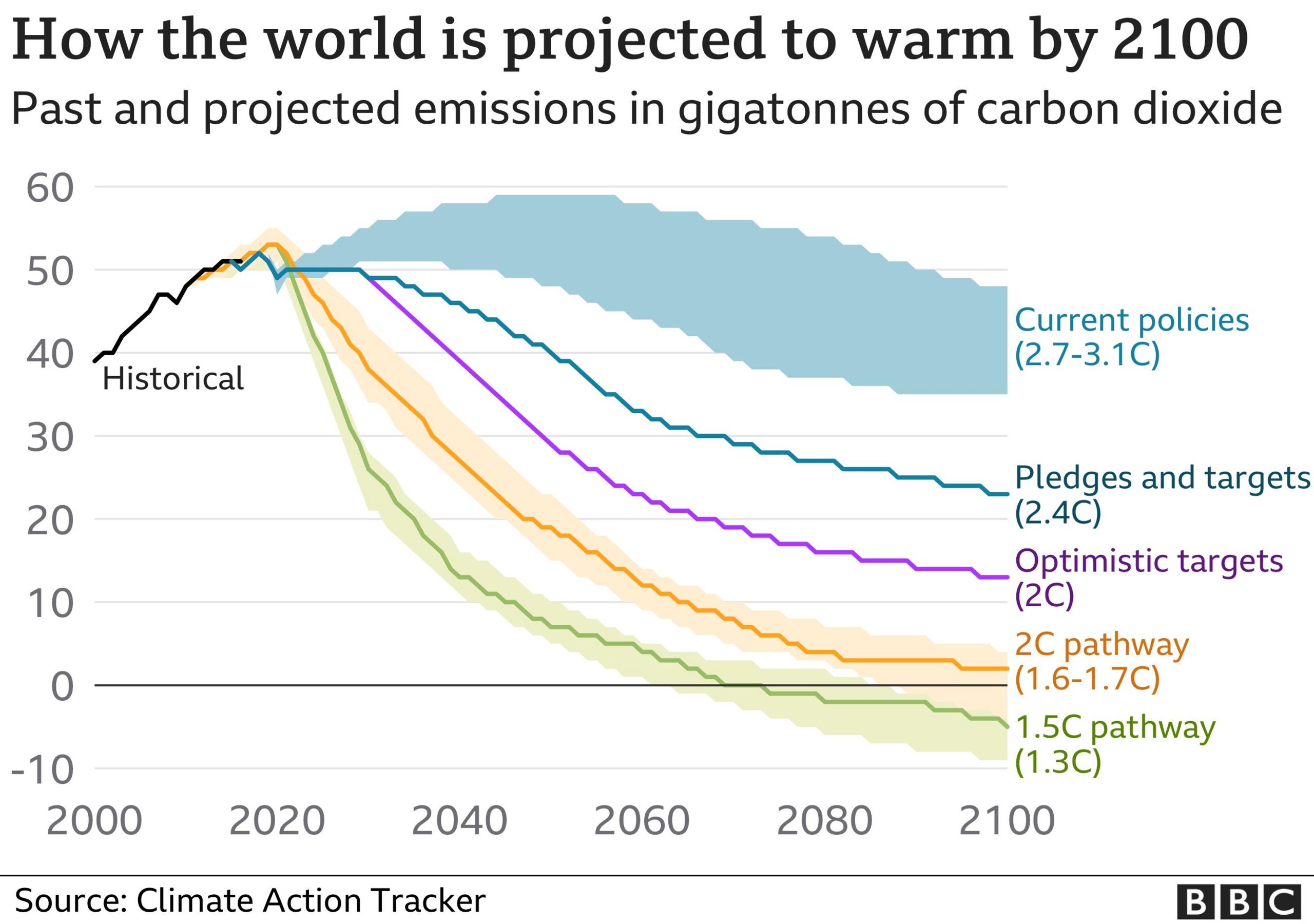COP26: Voice of youth has its say - inside and outside summit
- Published
Here are five things you need to know about the COP26 climate change conference on Friday.

1. New climate award as youth take centre stage
It's the turn of young people to have their say on how to address climate change, so expect a very different feel to the summit from earlier in the week, when the average age in the room was 60. As well as youngsters explaining how climate change is affecting them, UK government Education Secretary Nadhim Zahawi will set out a series of measures aimed at further embedding climate change in the English schools curriculum. The plans include a Climate Leaders award recognising efforts to protect the environment.
Follow the latest from the summit via our live page


2. Thunberg to lead campaign march
Away from the summit campus, thousands of young people are expected to join a march through the city organised by campaigner Greta Thunberg's Fridays for Future movement. With speeches scheduled afterwards, our environment correspondent Helen Briggs says we can expect to hear whether young activists are encouraged by the deals struck so far, or whether they consider them - as the Swedish teenager puts it - more "blah, blah, blah".
Activists tell us how they've prepared - and why they're protesting

3. Activist 'got death threats' after COP26 speech
Txai Suruí's powerful speech about the effects of deforestation in the Amazon, on the climate summit's opening day, may have won plaudits and impressed global leaders in the room. But the activist, who's from one of the rainforest's indigenous communities, was publicly criticised by her country's President, Jair Bolsanaro, for "attacking Brazil". Since then, she says, she has received death threats on social media.
"I think I said the correct words because they attacked me," says Txai Suruí

4. Up the road from the summit, concerns over diminishing snowfall
One hundred miles or so north of Glasgow, in the Cairngorms National Park, after the UK's longest lasting patch of snow disappeared for what observers say is only the eighth time in three centuries, people are troubled. They tell BBC Young Reporter Sofia their fears for what less snow and fewer snow days means for both life in the town of Aviemore - and the planet.
Climate change: 'We're seeing less snow on our Scottish mountains'

5. 'It's my job to keep COP26 fed - sustainably'
As head of catering operations for the COP26 campus, Lorna Wilson has overseen a transformation - ditching single-use plastics and aiming to supply 80% Scottish (and 95% British) food to up to 14,000 delegates a day. "Every single product line has been looked at individually: where did it come from, can we validate its source?" she says. "It goes right the way down to which tea bags we use, which wine we're purchasing - to uniforms, pens and pencils." Read her personal account.



And there's more...

There's been a lot of talk about cutting carbon emissions this week. But only two months ago, UN analysts reported we're actually on course to increase them. Scientists say to avoid the worst impacts of hotter conditions, our emissions must drop by 45% by 2030. The report, analysing the climate policies of more than 100 countries before the summit, said they would increase by 16% during that period. That could, it projected, cause a rise of 2.7C (4.9F) above pre-industrial times - far above the 2C pledged by the international community.
You can find further information on our climate page.


What questions do you have about changes in our climate?
In some cases your question will be published, displaying your name, age and location as you provide it, unless you state otherwise. Your contact details will never be published. Please ensure you have read our terms & conditions and privacy policy.
Use this form to ask your question:
If you are reading this page and can't see the form you will need to visit the mobile version of the BBC website to submit your question or send them via email to YourQuestions@bbc.co.uk, external. Please include your name, age and location with any question you send in.